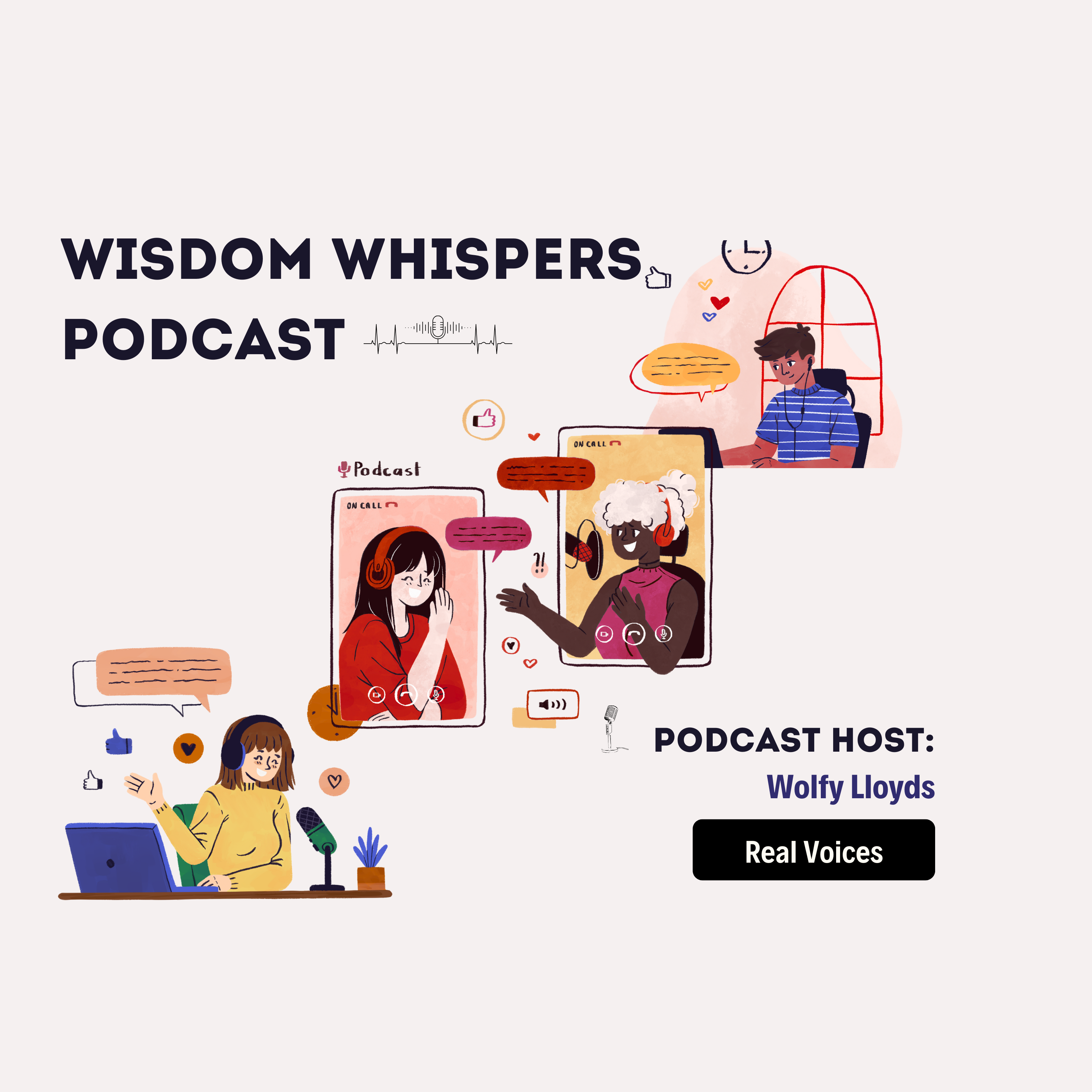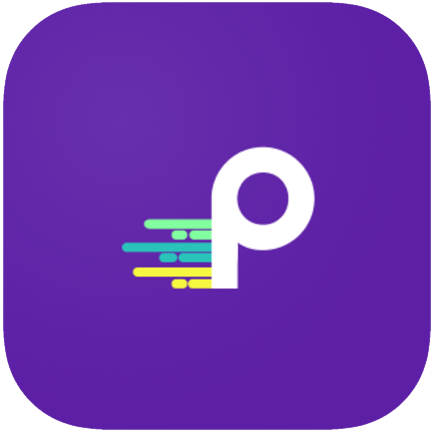

Acing English Exams: Tried and Tested Revision Techniques
Suited Tutor Podcast
| Wolfy Lloyds | Rating 0 (0) (0) |
| https://suitedtutor.com | Launched: Jul 01, 2024 |
| care@suitedtutor.com | Season: 1 Episode: 1 |
Developing effective study habits for GCSE English exams:
- Students should create a study schedule that allows them to cover all topics before the exam.
- Using active learning techniques such as summarising notes, creating flashcards, and practising past papers can enhance retention and understanding.
- Academic subject experts from Suited Tutor can provide guidance on how to effectively revise and prepare for your GCSE English exams.
Developing effective study habits for GCSE English exams:
- Students should create a study schedule that allows them to cover all topics before the exam.
- Using active learning techniques such as summarising notes, creating flashcards, and practising past papers can enhance retention and understanding.
- Academic subject experts from Suited Tutor can provide guidance on how to effectively revise and prepare for your GCSE English exams.
In the latest episode of "Acing English Exams: Tried and Tested Revision Techniques," the focus is on developing effective study habits for GCSE English exams. The episode emphasises the importance of creating a comprehensive study schedule, ensuring that students allocate sufficient time to cover all necessary topics well before the exam date. By planning their revision effectively, students can avoid last-minute cramming and reduce exam-related stress.
The podcast highlights the value of active learning techniques in enhancing retention and understanding of the material. Summarising notes helps students process and consolidate information, making it easier to recall during exams. Creating flashcards is another recommended method, as it allows for quick and frequent review of key concepts and vocabulary. Practising past papers is particularly beneficial, as it familiarises students with the exam format and types of questions they may encounter, as well as helps them identify areas where they may need further revision.
Additionally, the episode features insights from academic subject experts, referring to Mary Glaspole at Suited Tutor, the UK's elite tutoring provider, who provides valuable guidance on effective revision strategies tailored specifically for GCSE English exams. Her expertise helps students adopt best practices for studying, ensuring they are well-prepared and confident when it comes to exam day. This episode is a must-listen for any student looking to improve their English exam performance.
Good afternoon, it's another beautiful Thursday afternoon in the UK, and today we have a special guest called Mary Glaspole, I guess the world's top favourite tutor for English. My name is Wolfie Lloyds, and today in today's Podcast, we're going to talk about the wisdom whispers. So Mary, can I just ask if you could start by introducing yourself and share a few things about your background and your wealthy experience in teaching or tutoring English, please? Hello everyone, yes, it would be a pleasure.
I've been teaching English as a foreign language since 2004, and I travelled around the world teaching in different countries, and I've been teaching English GCSE Language and Literature since 2018. I used to work as the head of English in PT College in London, and then I became a self-employed tutor around 2015. Impressive.
Okay, Mary. Now, Mary, as you must be aware of now, we are traversing the GCSE exam period. On that note, most of the students across the world, perhaps IGCSE Year 10 students, according to the UK standards, they will be sitting the exam the year after.
On that note, do you have any effective revision techniques which can be quite important or useful to provide some guidelines for students so they can actually prepare for the year GCSE exams? What would you best suggest, Mary? All right, the first thing I would like to say is that you need to decide what kind of learner you are, and so, for example, if you're a visual learner, then it can be really helpful to put up information on corkboards in your bedroom, for example, with some information that you need to know for your exam or place them in front of your mirrors. Everybody looks at themselves first thing in the morning, so it's the first place you will look, and if you look there and you see your revision information, it will help you to absorb it. I can still remember things that I learned from walls which I pinned up.
I think this is a really useful way to help yourself to remember important information for the exam. Okay, so look at the mirror. So, basically, you have to look at yourself and just say, you know what, today you look glamorous, you look fab, you look stunning.
Okay, what a great way to start the day. Don't get distracted by looking at yourself too much and taking too many selfies. I guess the golden rule, Mary, as you are recommending, is just for a few seconds, don't spend the whole day looking at yourself, right, and admiring who you are, what you have become, right? Is that correct, Mary? Really not.
Okay, Mary, going forward. So, right, one of the things that many, many students nowadays are trying to do, they're trying to prepare, trying to revise on the very last minute, Mary. So, they haven't done the revision throughout the whole academic year and then, I would say, within the last seven days, just give it two weeks.
I'm trying to be generous right now, including myself sometimes when I used to be a student once upon a time and so I'd like to ask now, Mary, how can students balance their time between revising for their exams and also being ready for the GCSEs as well, papers? And also, on that note, what is the difference between the English literature and also English language exams? It's something that is kind of like, it's a bit mind-boggling, so could you please shed some light, Mary? Sure, I would love to. So, the first thing is that you've got three main bodies of English language and literature, Edexcel, AQA, and some students take their exams with, which is IGCSE, and this is for students whose first language is not English. Out of those three exam boards, I would say that Edexcel had more questions on the exam paper than AQA.
Oh, wow. So, it's a little bit more complex, but they're basically asking you for the same types of information. You were saying about how students should prepare themselves.
Yeah, exactly. So, what should you do? Any golden tips for me? To not end up sort of panicking at the last minute and the worst thing for the students. That's what I do as well.
That's what I do, Mary. Yeah, I think we're all procrastinators and we can all leave things till the last minute, and then, of course, you're panicking. You're not eating properly, you're not sleeping the night before the exam, and then you wake up grumpy, not ready, and then you don't get the grades that you want.
So, I think the way that you can avoid this is to divide the English language and the English literature paper and divide your time between the two exams. Now, for my students, I've broken it down into seven categories. You can study a little bit of each of these categories every day.
Now, there are seven days in the week, right? I guess so. I mean, it could be eight. I don't know, Mary.
You know best, right? You know best. So, you can have, for example, language paper one analysis on a Monday, creative fiction on a Tuesday, language paper two analysis on a Wednesday, creative non-fiction on a Thursday, Shakespeare on Friday, and poetry on Saturday, and your modern and contemporary text on a Sunday. So, if you stick to that schedule and you do a little bit of each of those topics on a rotational basis, then you'll be absolutely ready when it comes to the day of the exam.
Okay, okay. I think we're getting there. Now, Mary, I'm just trying to build upon your really good suggestions.
So, on that perspective, when it comes to the practical tips and techniques, what are some, again, from your experience, since you have been teaching English for quite many years, what are some common mistakes that students are making while they are doing their revision, and how can they prevent them going forward? As you say, like quite a lot of students are making the mistake of getting distracted, maybe by their mobile phones, maybe by social media, maybe by things that are going on in the house, and so the students need a quiet place to study. Also, I would suggest having a study partner because they're going through the same experience as you, and so you really understand each other. You might find somebody on your course, or it might be somebody that you found on social media, but I strongly recommend getting somebody to help you because they can motivate you and prevent you from falling into those traps of scrolling social media or playing computer games and actually get you into revision mode.
Interesting, but just to set the right expectations, Mary, you don't have to be engaged with your student partner, right? I just want to kind of like just clear this for myself. You're not asking someone to get married, right? As in married? No. It could be anyone, right? It could be even as well your classmate as a student.
Yeah, it can be somebody in your school, but if you can't find somebody who wants to do it, then you could find them on social media and advertise for somebody who's doing English language or GCSE and wants a study buddy, and then it should be possible to find somebody who can support you. I see. I see, Mary.
Now, when it comes to resources or perhaps tools, are there any particular resources or any online tools or old-school tools that you find especially helpful for English revision, Mary? My favourite method is quizzes. Oh, okay. Yeah, I'm a big fan of these quizzes because you can compete against yourself or you can compete against people in your peer group and these revision exercises, it feels really gamified like you're playing a computer game.
Fascinating. And that's really great because it's fun. A lot of, you know, revision that we think of the traditional methods are quite boring.
And so the quiz, you know, it's colourful, it's interactive, it's really great for motivating students. And you can compete against other people and there's a real sense that you're levelling up. Repetition is the key to learning, but you can go back to the quiz and you can do it again and try to beat your score.
Interesting. Okay, okay. I like the sort of a leaderboard sort of like situation.
Yeah. Be able to promote and advocate some healthy competition, I guess, Mary. Yes, I think, yeah, having a trophy at the end of it all.
We all like trophies, right? I do. I mean, especially if it's going to be a diamond instead of a golden one. Hopefully, I'm not asking right now too many things, Mary.
Yeah, I've got a trophy on my desk for the students and if they do really good work, then I give it to them. I understand. Now, when it comes to the motivation or mindset perspective, let's be honest, I mean, not everyone is born to be highly disciplined and highly motivated at all costs and at all times.
On that side, as perhaps as a parent or perhaps as a tutor, what can they do to support students in developing, I would say, a positive revision mindset so they can stay on track? What would you recommend, Mary, on that? I think that having parents on board in the revision process is really important. Obviously, I understand that not every parent can do it because they're working or they're busy with other things and if parents have large families, especially, it's difficult to support all the students. But I think they can at least try to.
For example, maybe cooking them nice food because when you're nourished, then you feel strong and you feel ready to study and that can really help. But also being there available psychologically for any problems or concerns that your child has. Then, on the practical side, if there is time, help them to revise and test them, giving them some flashcards and testing them on the flashcards.
I understand. I understand, especially for the eating things. Well, I've only had my lunch as of yet and speaking of food for thought, in our accommodations, I quite like the lasagna.
So, I guess for the food, Mary, it has to be healthy options. We're not talking about burgers or pizzas and listing something nice and healthy, revitalising. Is that correct? Would that help? Yeah, absolutely.
It's funny because when I was at school, one of my classmates, when she was revising, she used to eat jelly babies and Smarties and all of these high-calorific sweets, which of course, do give you a buzz. They're like energy drinks, I suppose. Some people find that works for them.
I mean, it's not healthy, obviously, but some people do find that having a sugar rush helps them. But no, I would highly recommend that. You're right.
I would say healthy food like natural sugars, for example, fruits, salads and healthy things are important for the food. I understand. Now, Mary, this is a bit of a... Yes, I understand that I have to keep a distance at least of two metres away from the microphone because I have a very big nose.
And for those who now keep on pondering, keep on wondering, it's because I'm being very, very, very nosy at the moment. Me and Pinocchio. Okay, what can I say? What can I say Mary?
Two metres. Pardon? Two metres. It traumatises me back to COVID time.
Oh, my. Oh, my. So, Mary, what has been the most rewarding aspect when it comes to yourself trying to help students with their GCSE English exams? Any kind of golden moments or any rewarding perspectives or anything that you have achieved and your students have come back to you and said, oh, teacher, teacher, Mary, I've done X, Y, Z thanks to your... I guess, Mary, I'm going to pass the baton to you right now.
All right. I'll tell you about an experience that I had last year with a student who was doing his English language GCSE and his parents were really worried about him because they said he was falling behind and he wasn't getting the grades that he needed past the exam. English is really important for students because without it, whatever they want to do in life, if they haven't got the GCSE, then it's blocking them and it's stopping them from going to college.
The college wants GCSE, whatever it is. So, he was really in a pickle and came forward to me and said, could I help him? And one of his problems was that he was struggling to remember the literary technique. Now, I came up with a mnemonic, which is a way of helping students to remember important information in an interesting way.
So, for example, there's the mnemonic shampoo. S is for simile, H is for hyperbole, A is for alliteration, M is for metaphor, E for personification, O for oxymoron. Okay.
And then that spells shampoo down the page, like an acrostic. And he learned it and he memorised it. And then when he came to the exam, he was able to use it to help him to identify his literary technique.
And he passed. And then the student's father came and said, it was largely thanks to the support that he got from his tutor that he was able to get the results that he did. Wow.
Wow, Mary, that's fascinating. And honestly, Mary, what I'm just thinking right now is that if I decide ever to shower anyone with compliments, I will definitely use your literature technique about the shampoo. So, again, a shower of compliments, right? Absolutely.
Okay. So, Mary, just out of curiosity, because of all the great members of the audience, we'd like to find out more about yourself. So, how can students, parents, tutors, and welfare lawyers who want to get raving autographs from your side, they can actually get in touch with you and find you if they need to seek additional support?
How can they get hold of you? All right. Well, you can get hold of me by email. I'm on Outlook and I'm also on Gmail as well.
You can send me a message. I've got a website and I'm actually in the process of uploading and creating my own exam papers. Wow.
So, it's just things that students won't have seen before. This is a big advantage because, you know, you do get some students who are given past exam papers and the first thing they do is go and look online and find the answer sheet and then send it back to me. Perfect.
But it's not their own work. The advantage of coming to me and getting the exam papers will be that you won't have an answer sheet available anywhere unless you ask for it at the end. I'm also on YouTube.
I'm creating YouTube videos to help students with, at the moment, the 11 plus. Sorry, not 11 plus, 13 plus. No worries, Mary.
And so, the videos will talk you through each question in each stage of the exam process. You get the opportunity to practise. Got it, Mary.
Well, everyone, I think that should be it for today. Thank you all for listening to this engaging and interactive podcast from the one and only Mary Glassball on the other side. That was your humble and, I would say, irritating host, Wolfie Lloyds.
And from our side, have an amazing day, everyone. Thank you and au revoir.















